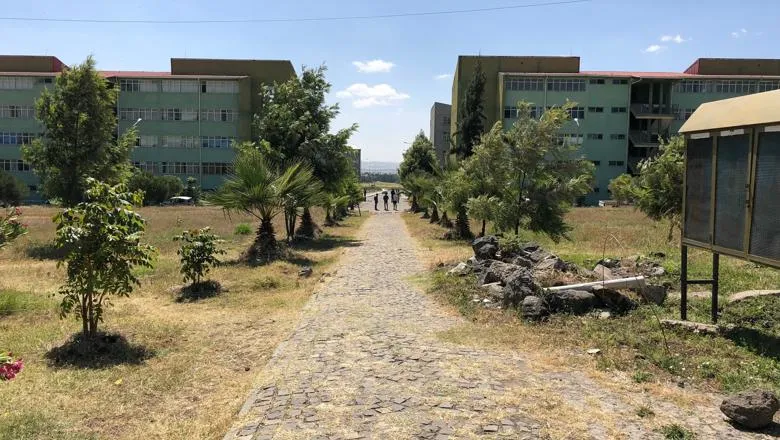17 January 2019
CANES staff and students teach at ASESMA 2018
Staff and students from the CANES doctoral programme taught at the 5th African School on Electronic Structure Methods and Application (ASESMA school), which was hosted this year by the Addis Ababa Science and Technology University (AASTU), in the capital of Ethiopia, Addis Ababa.

ASESMA is a bi-annual two week school, which brings together students from all countries of Africa, and is hosted in a different African country every year. The school is lead by Richard Martin, one of the most influential figures in the field of electronic structure modelling.
Dr Cedric Weber, Department of Informatics, and PhD students Carla Lupo and Evan Sheridan, sponsored by the KCL-CANES doctoral training centre, provided lectures on extensions of density functional theory (DFT) and limiting cases when things go wrong, such as for superconductors or correlated thermo-electric materials. They also offered a project that aimed at designing eco-friendly new materials that convert heat to electricity.
Alongside lectures, there were after dinner talks on a variety of topics such as the design via ab initio of new drugs against Malaria, or how to promote the role of women in science in Africa. There were also group discussions on topics such as how to improve the representation of women in science.
Carla and Evan said: ‘As PhD students, it was a tremendous experience that gave us the opportunity to disseminate the skills we have acquired through the CANES Centre for Doctoral Training. Moreover, thanks to their sponsorship, we have left ASESMA with new colleagues and friends from 14 African nations as well as being introduced to many new ideas and techniques that we had not been exposed to before. It has left us with a newfound understanding of the extent to which electronic structure theory continues to inspire scientists from all over the world.’
Projects with several of the students were set and will be carried out in the future and bridge KCL with Ethiopia, on the topic of new thermoelectric systems.
